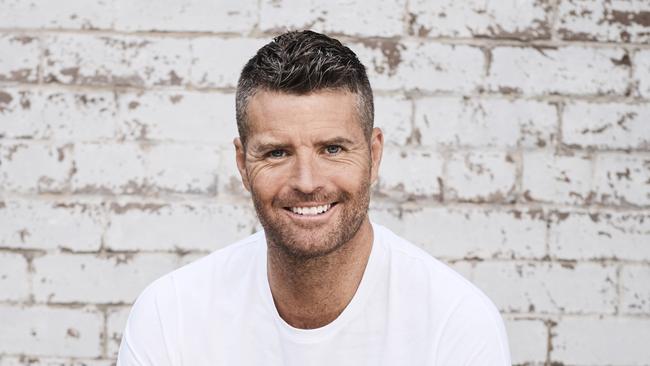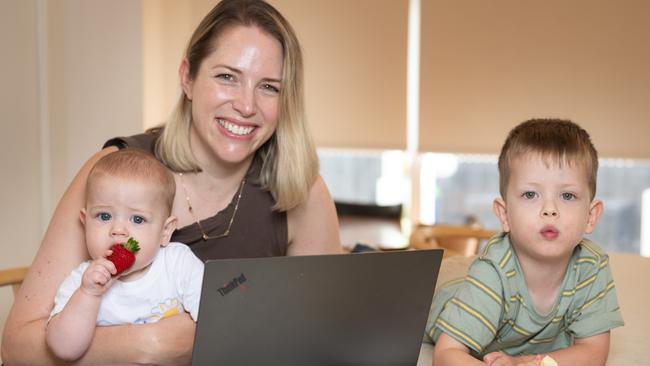Deakin University research reveals detrimental effect of Instagram influencers on diet
Unqualified influencers are dishing up diet and nutrition advice on Instagram that could have seriously detrimental effects on health — and experts are warning followers to beware.
Victoria
Don't miss out on the headlines from Victoria. Followed categories will be added to My News.
Clueless influencers are dishing out potentially dangerous dietary and nutritional advice on the social media platform Instagram, a new national study has found.
Led by researcher Emily Denniss, the study says it is the first to catalogue unqualified and inaccurate nutrition advice on Australian Instagram accounts.
Ms Denniss led a team from Deakin University’s Institute for Physical Activity and Nutrition in Victoria. It investigated almost 700 posts from influencers and brands, each with more than 100,000 followers.
“We focused on Instagram because it hadn’t been done before and also because nutrition is becoming a widely discussed topic on the platform,” Ms Denniss said. “Food is relatable, it gets engagement.”
The influencers in the study were a mixed bag, she said, including those without disclosed relevant qualifications and supplement brands. There were also accounts by qualified nutritionists and dietitians who, not surprisingly, were found in the study to offer the best advice.
Published in the International Journal of Behavioral Nutrition and Physical Activity, the study found almost half of the posts were from influencers with no apparent qualifications. Alarmingly, those with the lowest quality content were the ones with the highest level of engagement.
Of the most concern, Ms Denniss said, was the suggestion to give young babies liver as a first food.

This may have been influenced by former MKR judge and celebrity chef Pete Evans who produced a controversial baby paleo cookbook in 2015 that had health authorities warning “a baby may die if this book goes ahead”.
It was said to include a recipe for a DIY baby formula with ingredients including chicken liver, bones, oils and supplements.
“Parents are information-overloaded,” Ms Denniss said. “But this was potentially one of the most dangerous pieces of inaccurate advice.
“I think with nutrition information and misinformation there are various levels of consequence, but this one was really concerning because I saw it multiple times.”
She believes it comes from a certain segment of people who want to provide so-called “natural” foods for children.
“(But) giving liver to babies can have really direct consequences including vitamin A toxicity and in extreme circumstances it could be fatal.”
Ms Denniss said influencers also overstated the impact of dietary supplements which she said could also be harmful to people’s hip-pocket.
“Most healthy people don’t need to consume dietary supplements and I think in our current cost of living environment, encouraging people to unnecessarily take supplements is unethical,” she said.
Ms Denniss says nutrition was a tricky territory to govern online as it involved multiple regulatory authorities, including the Therapeutic Goods Administration, Food Standards of Australia and New Zealand and the ACCC.
“Social media platforms also have a responsibility,” she said.
“We need to toughen up on holding social media companies to account. Yes, there is a responsibility on the influencers, but they are posting through a platform that enables them to reach a large amount of people really quickly.”

Ms Denniss said there were ways social media platforms could embed functionality within their platforms.
“That was evident during Covid,” she said. “They issued warning signs or flagged content as being Covid-related information and directed consumers to the official government or WHO websites, so I think measures like that could be included.
“We could also verify people’s credentials. We can verify that Kim Kardashian is indeed Kim Kardashian, so why can’t we verify that someone is university-educated in a health related field?”
The study concluded that Instagram users are at risk of being misinformed when engaging with Australian Instagram content for information about nutrition.
Katherine Downing uses social media, but never for unqualified advice on health or nutrition when it comes to her family.
As mum to James, three, and Henry, nine months, she understands why time-poor parents are looking for good health information.
“I find it incredibly frustrating to see misinformation on social media that completely contradicts advice I’ve been given from health professionals,” Ms Downing said.
“Influencers spout this information … and parents who are seeking information follow the advice without realising these people have zero training in nutrition. It is worrying.”
Ms Downing said the best advice she was given was to make sure what you are reading online was reputable and backed by science.
What the study found:
• Brand accounts (such as supplement companies) had the least accurate and lowest quality information
• One third of posts contained poor quality information
• Posts by nutritionists or dietitians had the best information
More Coverage
Originally published as Deakin University research reveals detrimental effect of Instagram influencers on diet





